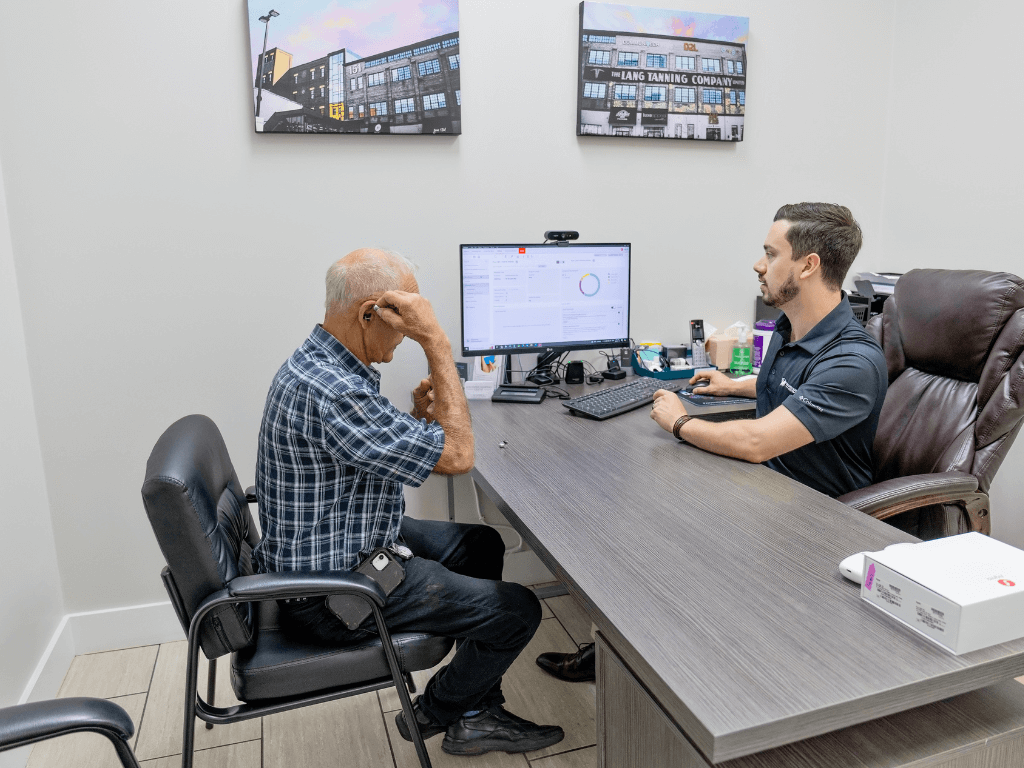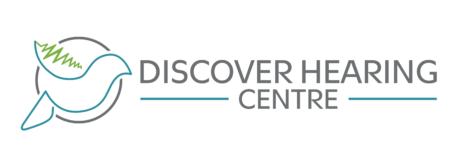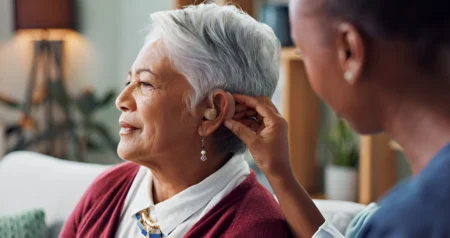How to Stop Ringing in One Ear: Effective Remedies and Expert Advice

If you’ve been dealing with ringing in just one ear—called unilateral tinnitus—you’re not alone, and there are effective ways to address it. In this guide, we’ll cover what might be causing that ringing, straightforward ways to manage it, and when it might be time to reach out for expert help. We’ll also introduce clinical best practices that our organization utilizes with our patients that offer a tailored treatment solution.
What is Unilateral Tinnitus?
Unilateral tinnitus refers specifically to hearing a ringing, buzzing, or hissing sound in one ear instead of both. This can be a persistent, distracting condition, often tied to specific health issues or changes in the ear itself. By learning about the unique nature of unilateral tinnitus, you’ll be better equipped to recognize symptoms and know when to seek additional support.
Common Causes of Ringing in One Ear
Ear Infections and Inflammation
Ear infections, inflammation, or even blockages can lead to tinnitus in one ear. These issues can create pressure changes and fluid buildup, which might result in that bothersome ringing. Fortunately, treating the underlying infection can often bring some relief. We recommend speaking to a respective family physician to identify and treat these symptoms.
Exposure to Loud Noises
Exposure to loud or prolonged noise—whether at a concert or from work-related machinery—can damage the sensitive cells in your ear. While some noise-induced tinnitus is temporary, repeated exposure can make it a long-term issue, underscoring the need for ear protection.
Earwax Buildup
Believe it or not, something as simple as earwax buildup can contribute to ringing in one ear. When earwax blocks the canal, it can create pressure and cause temporary tinnitus. Regular ear care or professional cleaning is often an easy fix for this type of ringing.
Age-Related Hearing Loss
As we age, hearing changes naturally. This can sometimes trigger tinnitus in one or both ears. Staying on top of your hearing health with regular checks is a good way to catch any changes early and manage symptoms effectively.
Underlying Medical Conditions
Certain health conditions, such as high blood pressure, TMJ disorders, or even past head injuries, can lead to tinnitus. Understanding any underlying conditions that might contribute to ear ringing can often help to treat these symptoms more effectively.
Self-Help Techniques for Managing Tinnitus
Sound Therapy and Masking Devices
Sound therapy is a popular way to manage tinnitus by “masking” the ringing sound with ambient noise. White noise machines, apps, or even music can help to reduce the prominence of ringing in your ear, making it less disruptive.
Stress Reduction Techniques
There’s a close connection between stress and tinnitus. Stress-relieving activities—like mindfulness, yoga, or meditation—can often lessen the severity of tinnitus symptoms by calming the mind and body. This process is called habituation, and allows for the brain to consciously reduce the emotional stimulus that often comes with tinnitus symptoms.
Lifestyle Adjustments to Minimize Tinnitus
Certain lifestyle choices, like cutting back on caffeine or reducing alcohol, can also help reduce tinnitus symptoms. Small changes can go a long way in supporting ear health and overall well-being.
Also Read: Best Ways to Relieve Tinnitus: Effective Solutions
When to Seek Professional Help
Persistent or Worsening Symptoms
If your tinnitus symptoms are ongoing or worsening, it’s wise to seek a professional evaluation. Persistent symptoms might point to an underlying issue that needs attention.
Impact on Daily Life and Mental Health
Living with tinnitus can take a toll on daily life, affecting sleep, concentration, and even emotional health. If the ringing is making it hard to cope, professional support can provide real relief.
Diagnostic and Clinical Treatment Options
Discover Hearing Centre offers comprehensive assessments and targeted treatment options designed to get to the bottom of your tinnitus and provide practical solutions for tinnitus relief and management. Often treating the underlying hearing loss through the use of hearing aid amplification, our experts will help you manage your tinnitus.
FAQs about Ringing in One Ear
Can tinnitus in one ear go away on its own?
Sometimes, tinnitus goes away on its own, especially if it’s related to temporary causes like earwax or brief noise exposure. However, if the ringing persists, it’s worth getting it checked out.
How does diet impact tinnitus?
Certain foods and drinks, especially those with caffeine or high sodium, can sometimes worsen tinnitus symptoms. For some individuals, a balanced diet might help manage the intensity of the ringing.
Take the Next Step: Find Relief with Discover Hearing Centre
If you’re ready to find real solutions for ringing in one ear, Discover Hearing Centre can help. Book an assessment today to understand what’s causing your symptoms and explore the options for lasting relief.
Discover Hearing Centre is dedicated to helping Canadians find relief from tinnitus with services like personalized consultations, advanced hearing solutions, and custom treatment plans. Visit our hearing clinic in Kitchener and schedule a hearing test with our professional experts. We offer comprehensive audiology services, from hearing tests and education to digital hearing aids and personalized hearing loss treatments that put you and your specific hearing health needs at the centre. Whether you need a hearing test, are looking for invisible hearing aids or require help with hearing aid fittings and programming, Discover Hearing Centre is here for you.
Discover Hearing Centre is a local clinic specializing in the treatment of hearing loss; we’ve worked with hundreds of patients to help them maintain independence. Whether you’re experiencing hearing loss or tinnitus, we’re dedicated to improving your quality of life through better hearing. When you choose us, you choose a team committed to your well-being.
Call us today at 519-208-4327 or fill out our convenient online form to learn more about how we can help you with hearing loss issues.
You Might Also Like
Top 4 Major Causes of Hearing Loss
What Is Tinnitus? Causes, Symptoms, and Treatment Options
Does Tinnitus Get Worse With Age?
Have Questions?
Call our office if you have any questions about your hearing loss or anything else related to hearing. We are happy to help and answer any questions you may have.





